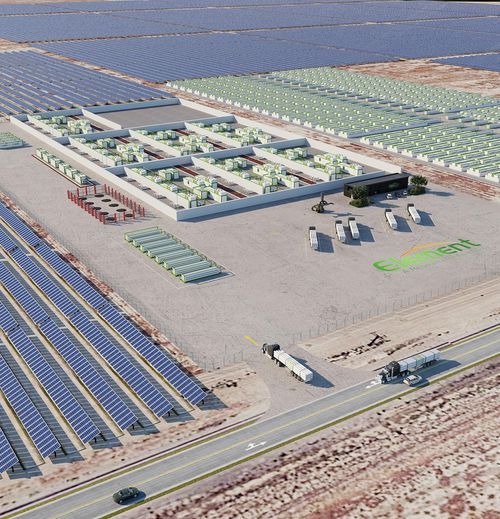A US-based clean fuels developer has large capital needs for unannounced green hydrogen projects in California and Illinois, as well as an ammonia facility in Texas.
Avina Clean Hydrogen has yet to formally engage an investment banker to raise the equity and debt needed for a trio of projects under development in the US, CEO Vishal Shah said in an interview.
The company, which recently announced the formation of a strategic advisory board composed of executives from companies like Cummins, bp and Rolls Royce, will need $600m or more of debt and between $200m and $300m of equity, as previously reported by ReSource. Capital raising talks are focused on the operating company and project level.
Capital raises for Avina’s 700,000 mtpa green ammonia project in the Texas Gulf Coast and a larger operating company raise will launch next month, Shah said.
“The amounts that we are going to need to raise have gone up,” Shah said. “We are working with a number of banks but we’ve not engaged anyone formally.”
Buildout of the Texas project has been accelerated. The company recently announced an agreement with KBR for that project, which is scheduled to come online next year.
Project level capital has been raised for Texas and a green hydrogen project in Southern California, Shah said. An additional green hydrogen project in Illinois is in development as well.
Finding the renewable power
Renewable power needs for these facilities are big, but Shah said the company doesn’t see a shortage of power. Instead, developers are facing interconnection issues and subsequent cost increases.
Hydrogen developers in California are in many cases offering higher prices for renewable energy than other buyers, Shah said. The issue is that credit-worthy investment counterparties are often seen as more attractive offtakers regardless of the higher price offers from aspiring hydrogen producers.
“I would say California is different,” Shah said. “The offtake market is a challenge.”
There are renewables developers with a genuine interest in hydrogen looking at the sector as a long-term play, Shah said. But for some without a strategic interest in hydrogen, a community choice aggregator offering a 15-year offtake is more certain than a hydrogen developer offering a 10-year offtake; higher price can be seen as a trade-off.
“That’s the nature of the beast, right now.”
Regulatory uncertainty
Investors looking into the space are hesitating to deploy capital in some cases because of uncertainty around IRA clarifications, particularly with regards to the PTC qualifications, Vishal said.
“A lot of the customers, lenders, everybody’s waiting to make decisions,” Vishal said. Offtakers also have hesitations. “Nobody wants to sign long-term contracts in an environment where pricing is not clear.”
Shah said investors should look for offtake when investing in projects. Avina has two of three contracts signed for each of its projects.






